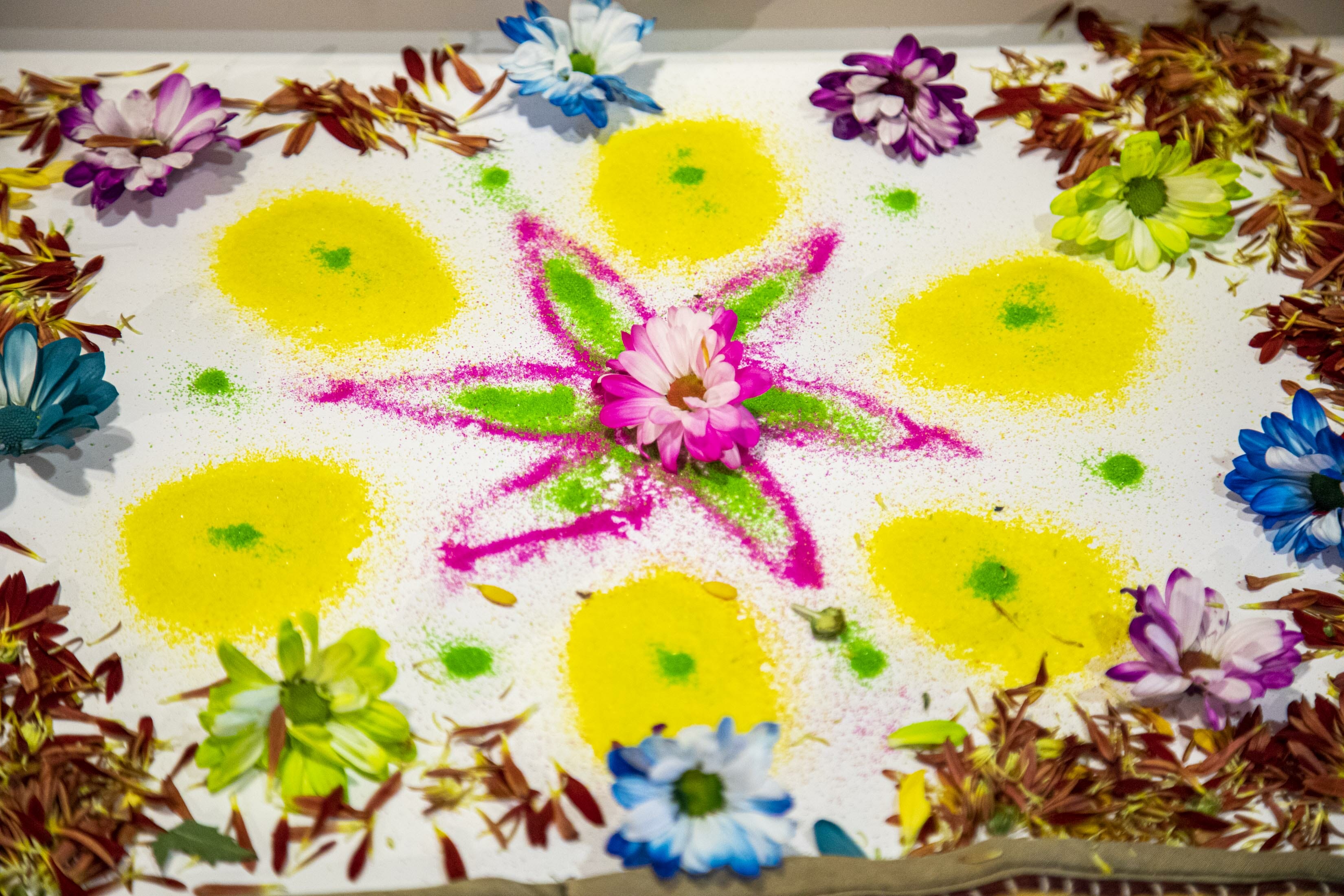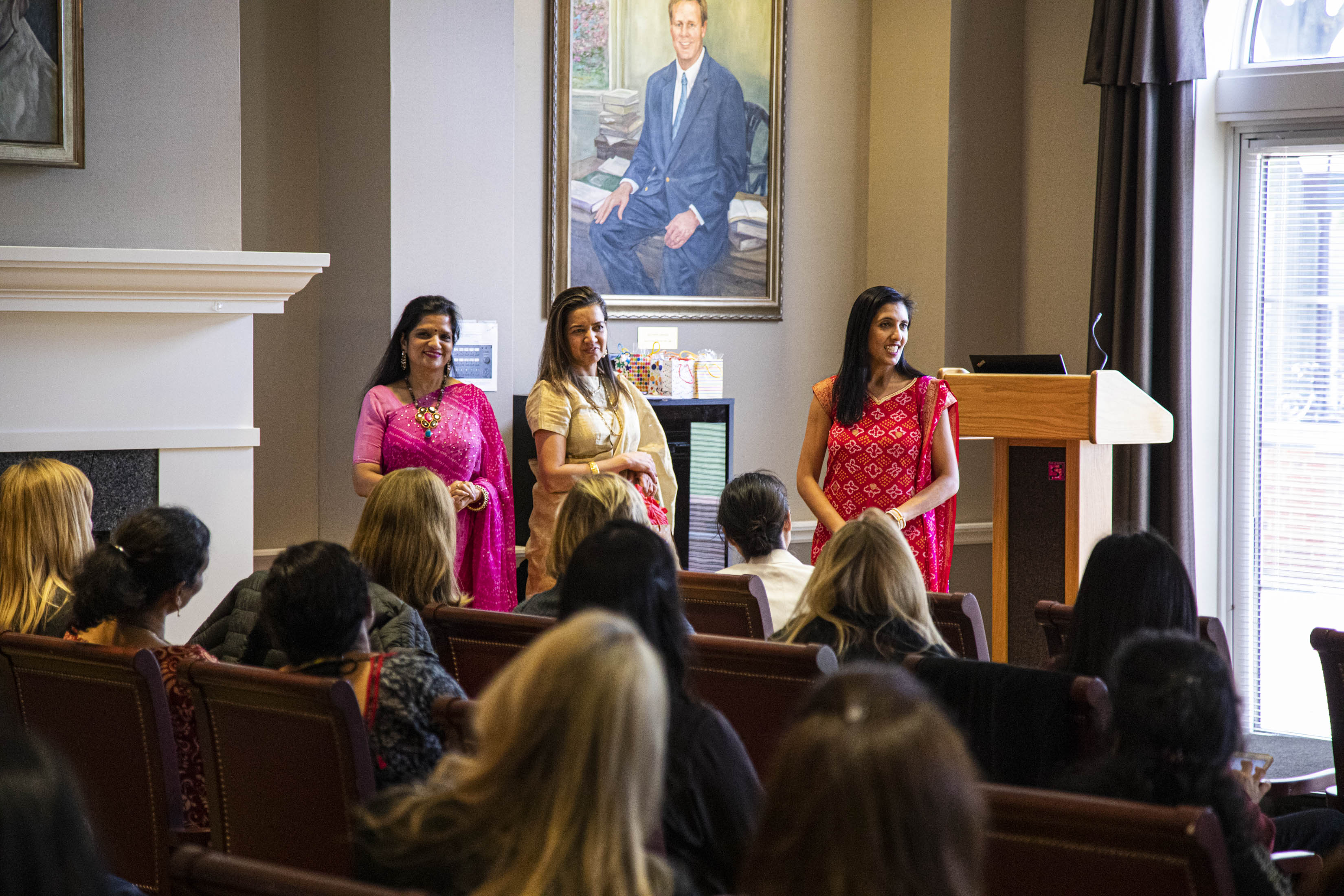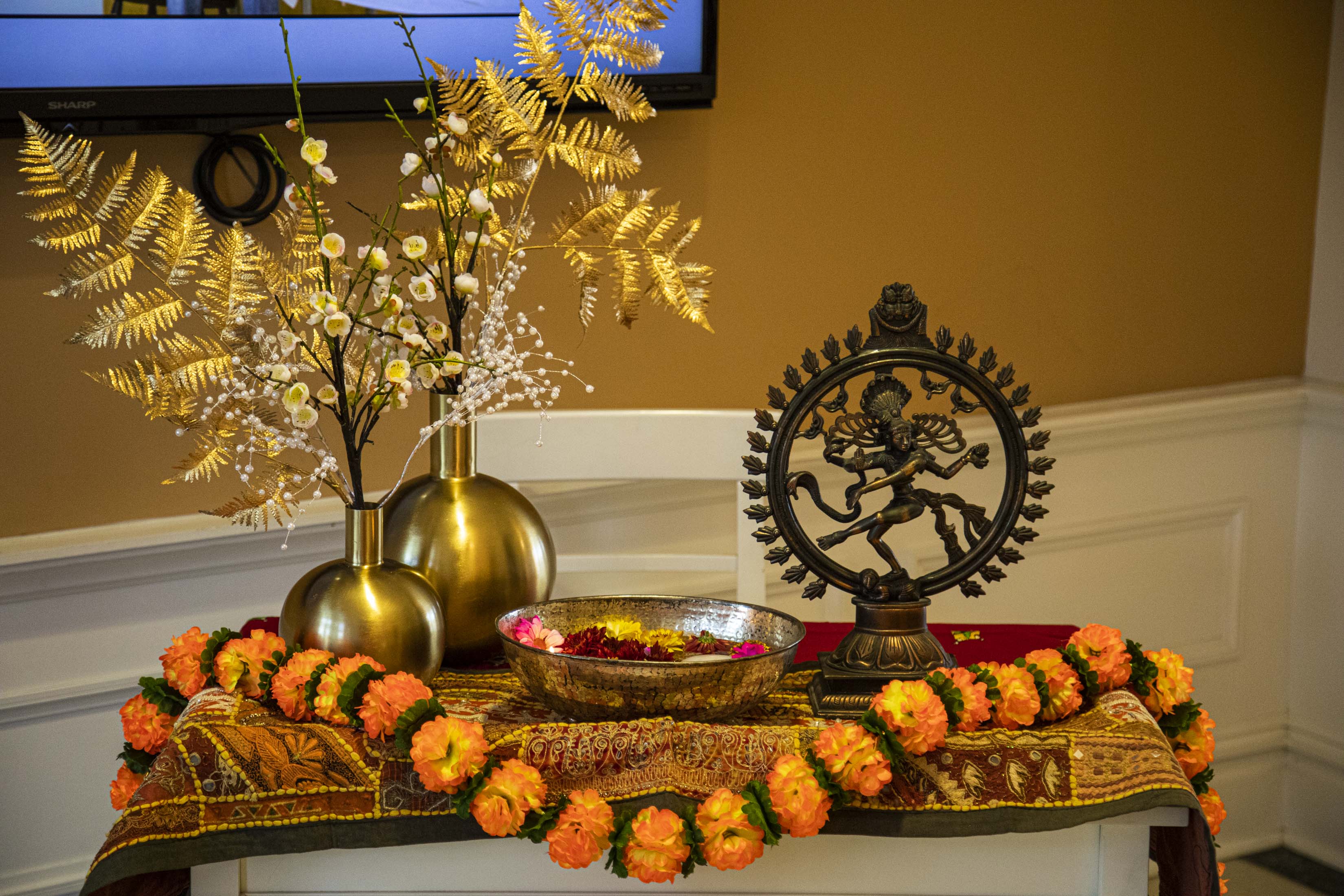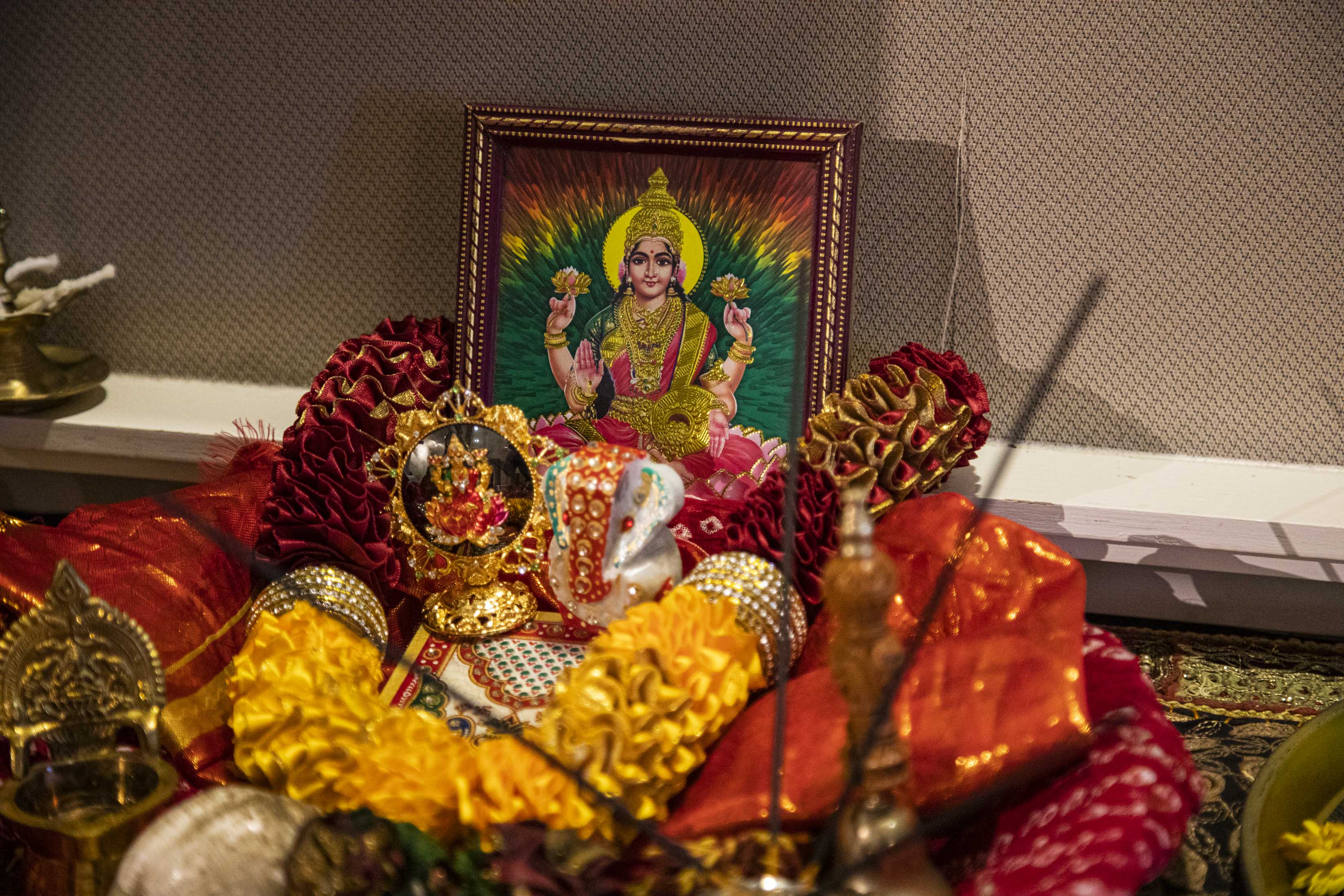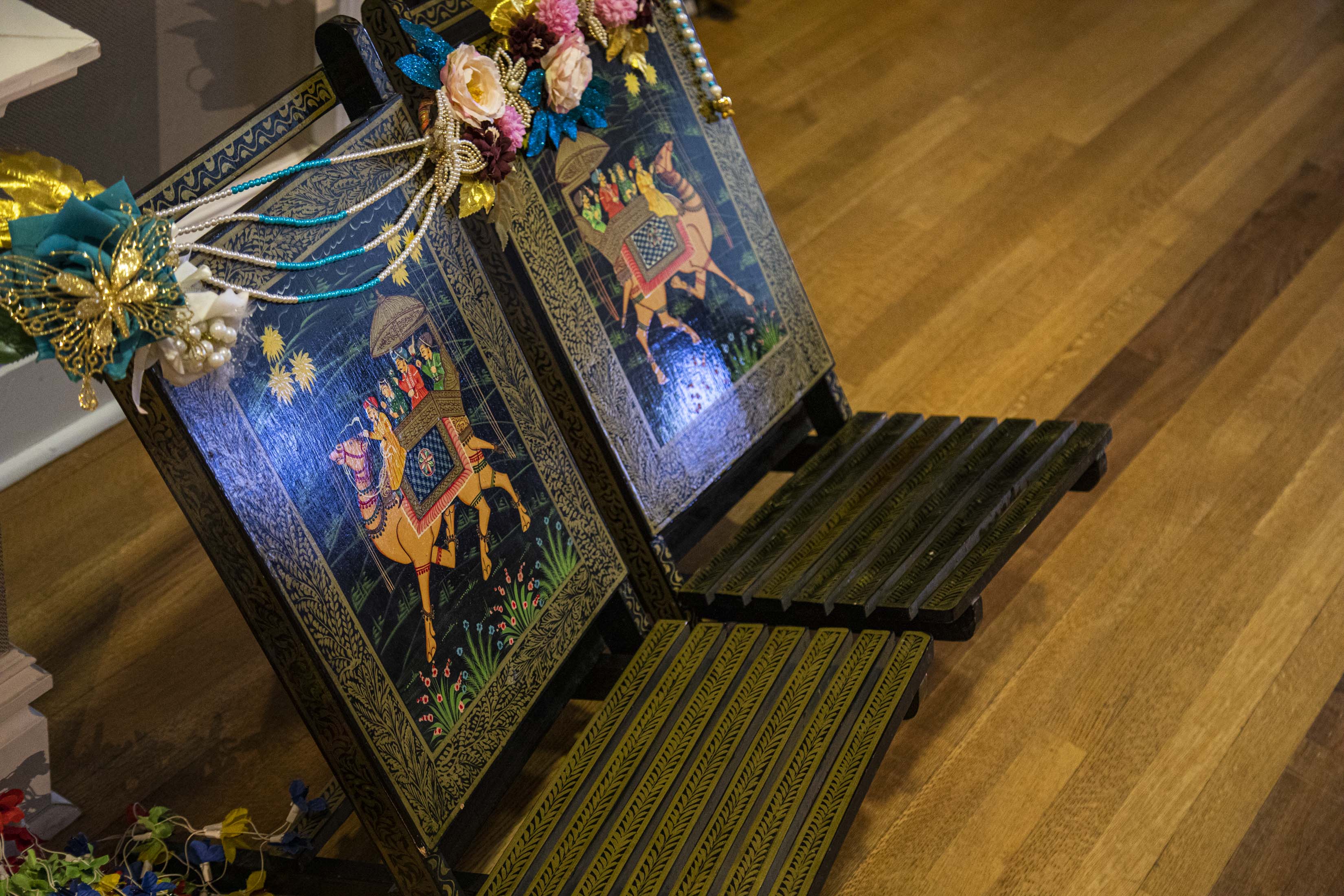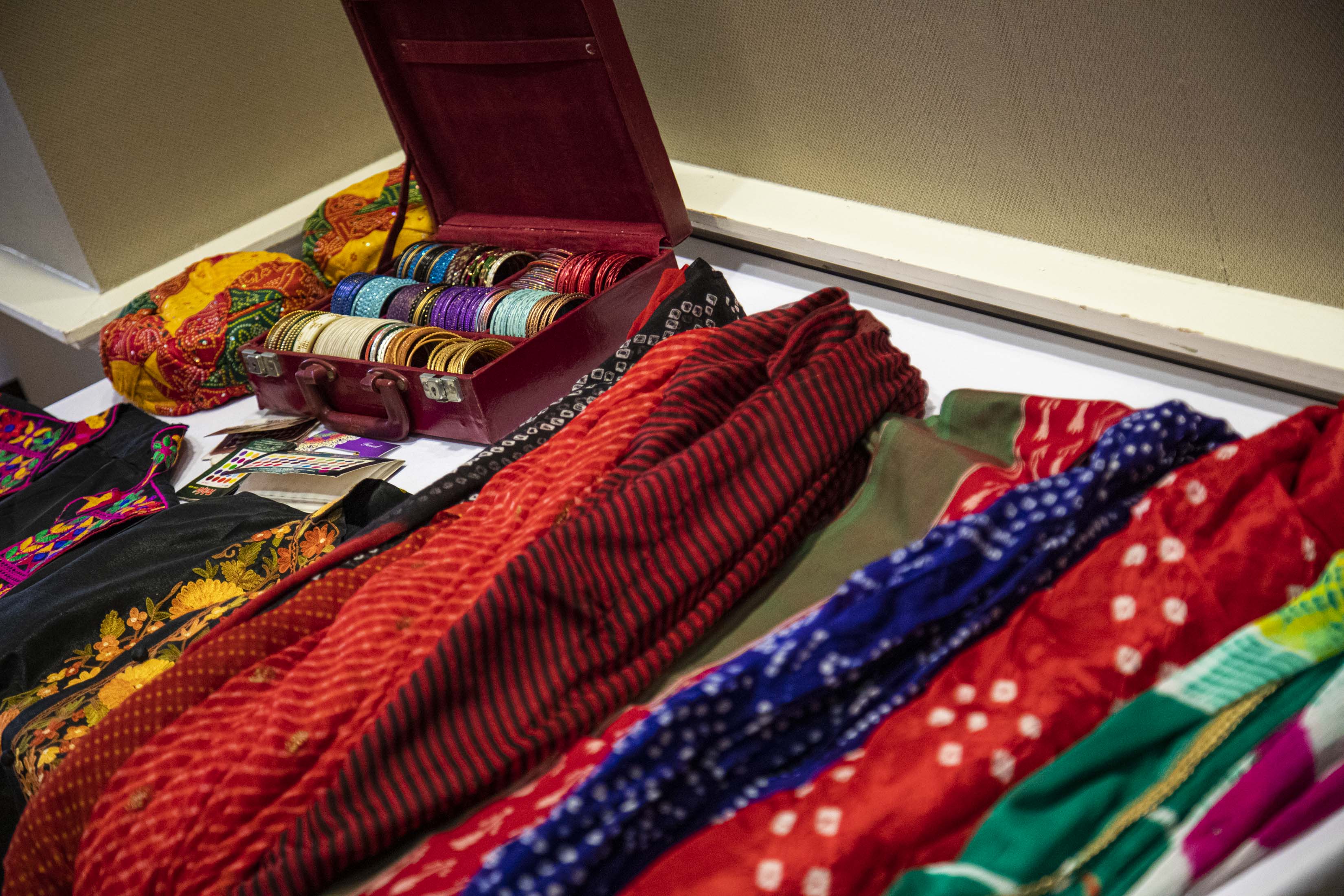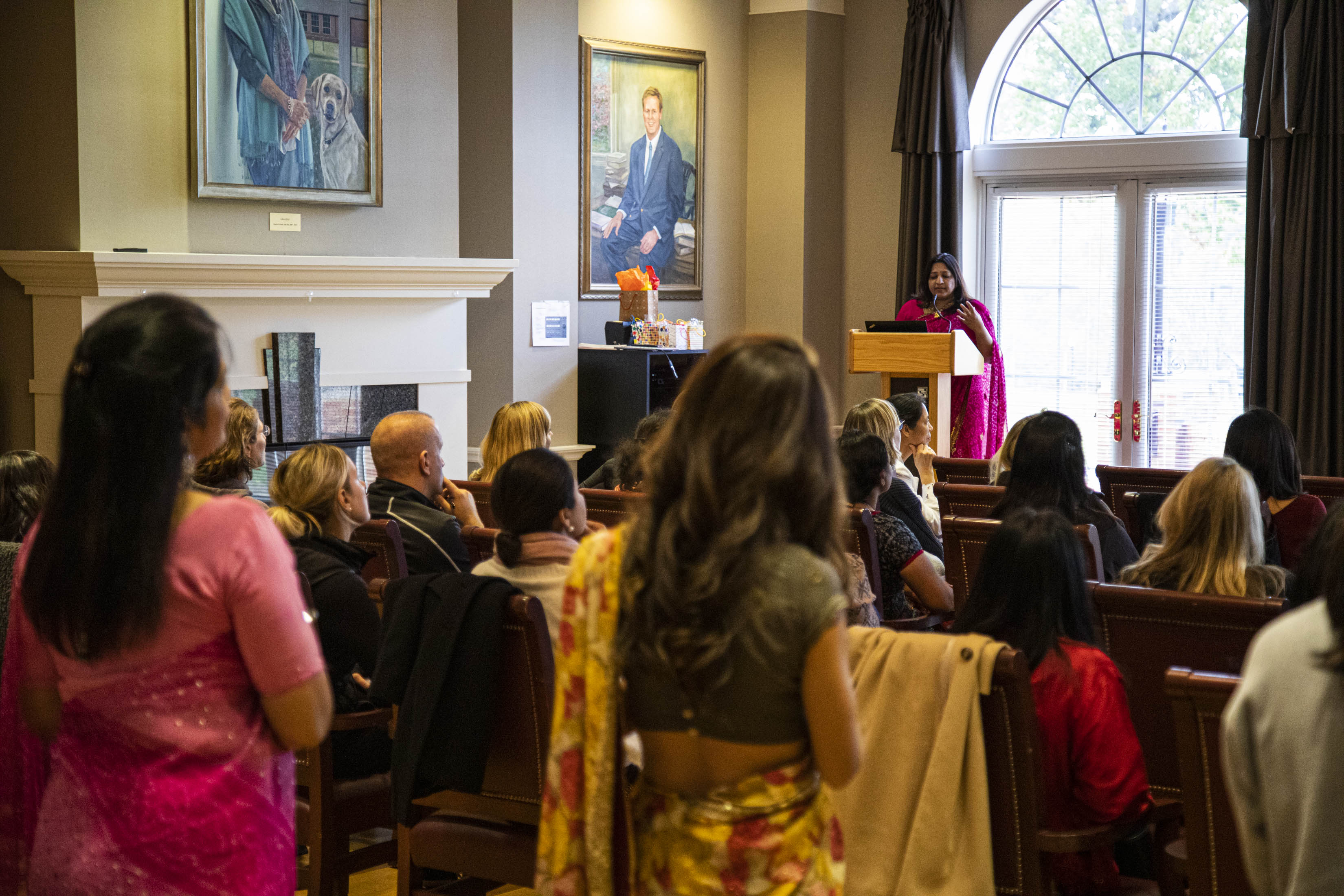The Olson Hall Presentation Room was filled with color and light on Thursday afternoon as the Passport Series celebrated Diwali, the Hindu festival of lights. The word « Diwali » comes from the Sanskrit word « deepavali, » meaning « rows of lighted lamps. » For five days, houses, shops and public places are decorated with small oil lamps called diyas for this festival. The burning of lamps signifies inviting light and positive energy into our lives and getting rid of all the negativity in all aspects of life.
To celebrate Diwali, people enjoy fireworks and sweets. The festival is really popular with children, and meeting with friends and families is an integral part of the celebration. Lakshmi, the Hindu goddess of wealth, fortune and prosperity, is also celebrated in Hindu households during the festival and invited to enter every household to grant wealth to each individual and to business owners.
At the Passport Series Diwali celebration, guests got to try a taste of Diwali food which consists of traditional recipes made for generations and includes sweet as well as savory dishes along with tea (chai with cardamom) and mango smoothies.
Some of the popular desserts were peda ( condensed milk and sugar), badam katli (almond/ cashew nut paste with sugar) and coconut burfee (made with coconut, sugar). For savory dishes, guests enjoyed samosa (potato-filled, deep-fried pastry), Idli (steamed rice, lentil dumplings), pulav, biryani (rice flavored with vegetables and spices) and dhokla (steamed lentil batter steamed).
For attire, women typically wear brightly colored outfits made out of silk, chiffon or cotton with embroidery. The ensembles are called Sarees (five yards of fabric wrapped around) and Salwar Kameej (a top and bottom with a scarf). A lof of jewelry and accessories with matching footwear is also added to create a festive look. Men wear similar, long shirts called Kurtas over jeans or tight pants made out of silk or cotton.
Thank you to Leena Tibrewala, Hiroo Motwani and Rakhee Bayanis for leading the organization of this event along with several other MICDS parents and guardians. « It was a collective effort by all the MICDS families that celebrate Diwali who wanted to share and extend the peace and prosperity that is brought by this festival into everyone’s lives at MICDS, » said Leena.
What a bright, wonderful way to celebrate Diwali at MICDS!
